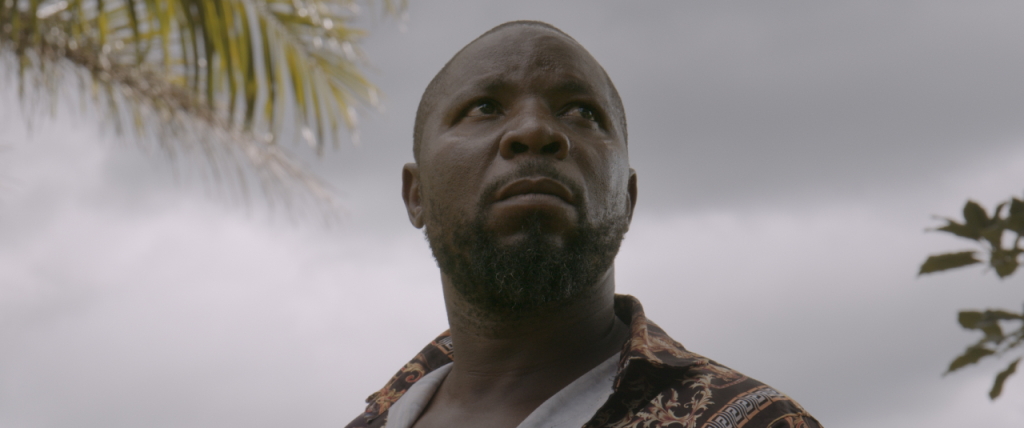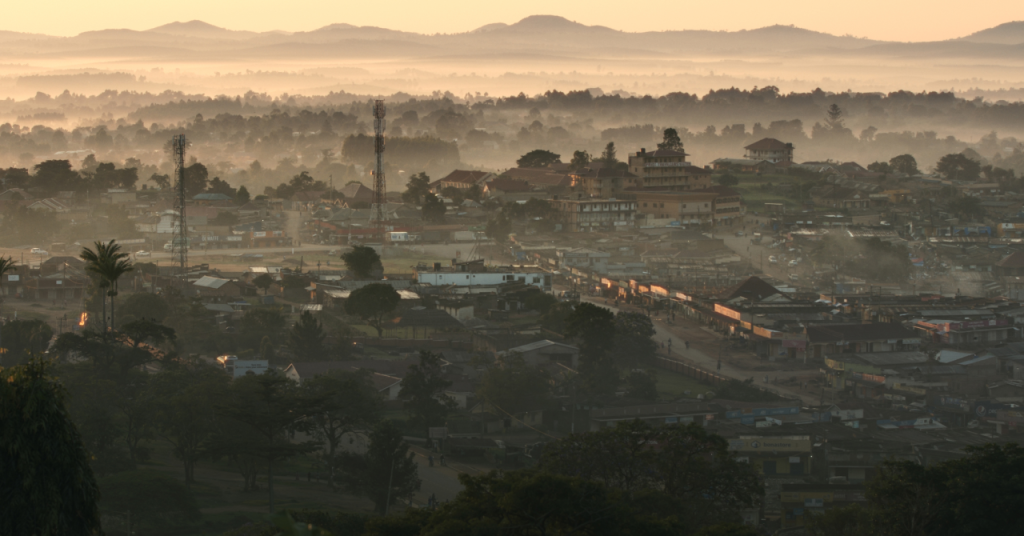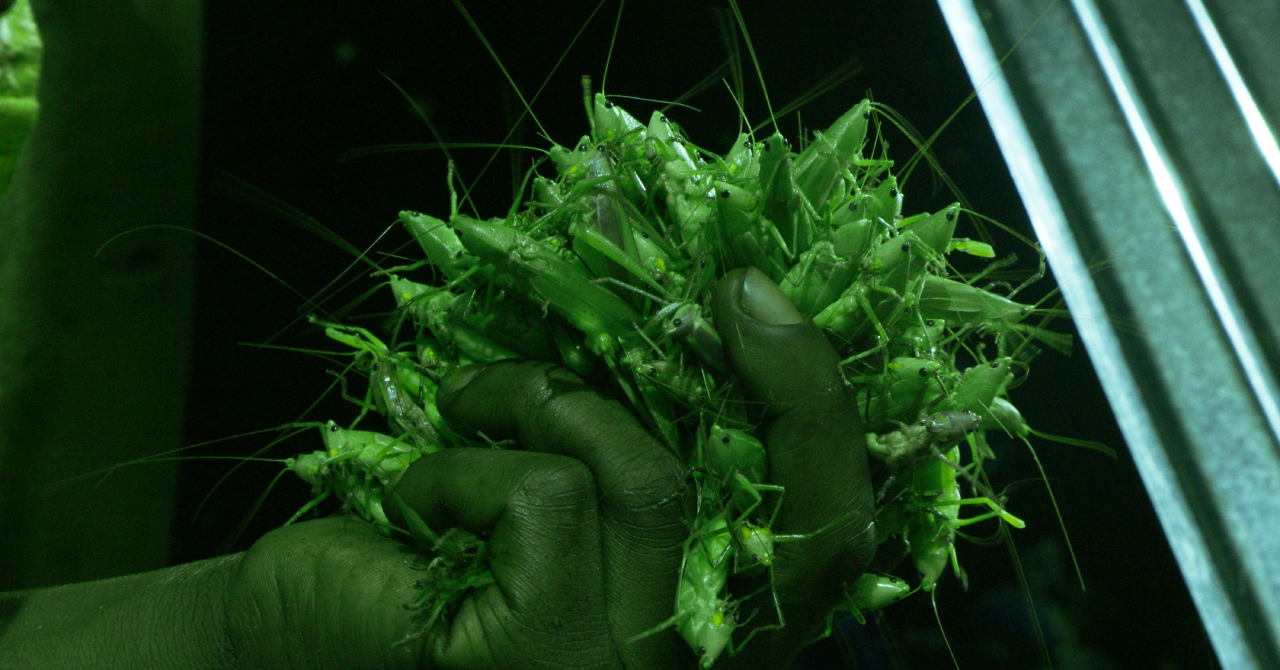“Grasshopper Republic” is a visually captivating and thought-provoking documentary that takes viewers deep into the heart of Uganda’s lush forests, where millions of grasshoppers gather in swarms, and young men work tirelessly to harvest this prized delicacy.
Directed by Daniel McCabe, this film offers a unique and immersive experience, blending stunning cinematography with an exploration of the intricate relationship between nature, human culture, and economics.
This documentary film’s greatest strength is its ability to transport the audience to a world that is both visually stunning and entirely foreign to most viewers. The lush forests of Uganda serve as a breathtaking backdrop for the film, with its vibrant greenery and diverse wildlife. For anyone who isn’t familiar with the beauty of Africa, this documentary film is a perfect example of one that captures the vistas that are most often not shown about African countries. In this case, the focus is Uganda, and with all that the country has been through, it is refreshing to see that it is still naturally a beautiful place.
McCabe‘s works in collaboration with Michele Sibiloni, author of the photographic book that inspired the making of this film. Together, they allow us to witness the grasshoppers in all their delicate and intricate glory.
The filmmakers take advantage of closeup macro shots to show the grasshoppers in full detail, from how they feed to how they grow. The shots are so tastefully done and very immersive even for the untrained eye. Every single moment is beautifully captured. Even if you find crawling insects creepy, you are sure not to get grossed out by how beautiful the cinematography of this film is.
The film’s pacing is deliberate and allows for an in-depth exploration of the grasshopper harvesting process and the challenges that the people who make a business out of this are faced with.

From the beginning of the film, we are introduced to a group of young men who set up a curious contraption on the edge of crop fields, patiently awaiting the arrival of the swarms. This methodical approach not only immerses us in the process but also builds anticipation for the moments of capture. McCabe’s choice to show rather than tell is a testament to his storytelling ability, allowing viewers to draw their own conclusions about the challenges and intricacies of grasshopper trapping.
It takes you about the first 15 to 20 minutes of the film to figure out what it is about as it doesn’t take the typical documentary approach with interviews and narrations. You just have the visuals, the dialogue and interactions with the farmers, harvesters and their cohorts.
We see the young men negotiate prices, set up generators in remote locations, and even grapple with the potential damage to crops caused by the lights used to attract the grasshoppers. This exploration of the delicate balance between economic opportunity and environmental impact is both informative and thought-provoking.
The film in a simple way paints a perfect picture of the trade business that has developed over time because the natives love the delicacy that grasshoppers are. By the end of the film something that seems like an infestation with otherwise many downsides turns out to be a lucrative harvest season that seems to be a vital part of commerce and trade for the people of Uganda.
“Grasshopper Republic” excels in its portrayal of the interplay between humans and the environment. The film sheds light on the industry that has developed around grasshoppers as a food delicacy and the intensive efforts to trap them during their migrations.
The musical score done by Robert Aiki Aubrey Lowe is another thing that stands out about the “Grasshopper Republic.” The score itself takes you on a journey just like the visuals. In many ways, it complements the experience for the viewer. Giving the documentary a sci-fi or afro-futuristic feel.

However, like any film “Grasshopper Republic” is not without its weaknesses. Some viewers may find the deliberate pacing and focus on minute details less engaging than a more fast-paced documentary. The patient and observational approach may not appeal to those seeking a quick, action-packed narrative.
Additionally, while the documentary excels in capturing the visual and sensory aspects of the grasshopper trapping process, it could have delved deeper into the cultural and economic significance of grasshoppers in Ugandan society. A more comprehensive exploration of the cultural context and the broader impact of grasshopper harvesting on local communities could have added depth to the film. Perhaps, this is where the standard usage of interviews and voiceover narration might have benefited the film.
In conclusion, “Grasshopper Republic” is a visually mesmerizing and thoughtfully crafted documentary that immerses viewers in the fascinating world of grasshopper harvesting in Uganda.
I will score this documentary 4 out of 5 stars.
Daniel McCabe‘s approach combined with stunning cinematography and an evocative musical score, makes for a unique and memorable viewing experience.
Anyone who appreciates immersive and visually stunning documentaries will find “Grasshopper Republic” to be a treat worth catching. It’s a testament to the beauty and complexity of the natural world and the human endeavours that intersect with it.


















